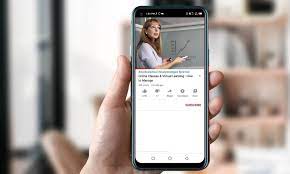
Mobile learning, also known as m-learning, refers to education or training conducted through portable devices like smartphones and tablets. This mode of learning is gaining traction, presenting a variety of benefits that can sometimes make it more advantageous than traditional classroom education. Here are several ways in which mobile learning proves to be more beneficial:
1. Flexibility and Accessibility
Mobile learning allows students to access educational content anytime and anywhere. Unlike classroom settings, where learners have to adhere to a strict schedule, m-learning fits into the lifestyle of the learner. It’s especially beneficial for those who need to balance school with work or family commitments.
2. Personalized Learning Experience
With m-learning, educational programs can be tailored to match the learning speed, style, and preferences of each individual. Many mobile apps adapt in real-time to the learner’s performance, providing a personalized experience that is not easily achievable in a traditional classroom.
3. Engaging and Interactive Content
Mobile devices support multimedia content such as video, audio, and interactive quizzes that can make the learning process more engaging. Gamified elements can also be incorporated to enhance motivation and participation.
4. Cost-Effective
In many instances, mobile learning is more cost-effective than classroom education. It reduces the need for physical materials, travel, and infrastructure upkeep associated with maintaining classroom spaces.
5. Immediate Feedback
Mobile applications often provide instant feedback on quizzes and exercises which aids in faster learning and retention. This instantaneous response allows learners to understand their mistakes and correct them promptly.
6. Facilitates Collaborative Learning
Through forums, chats, and other collaborative tools built into mobile platforms, students can interact with their peers from around the world. This enhances their educational experience by exposing them to diverse perspectives.
7. Environmentally Friendly
Mobile learning is an eco-friendlier alternative to traditional education methods with reduced paper use and traveling needs; it leaves a smaller carbon footprint.
8. Continual Learning Process
As mobile devices are always with us, m-learning does not have to end outside of ‘school hours.’ Learning becomes an ongoing process that integrates seamlessly into daily life instead of being confined to a schedule.
In conclusion, mobile learning presents itself as an adjunct or even an alternative to classroom education by offering flexibility, personalization, cost-effectiveness, and an interactive environment for learners worldwide. As technology continues to evolve and become further integrated into our lives, the line between traditional educational settings and digital realms will become increasingly blurred – potentially revolutionizing how we view education itself.
